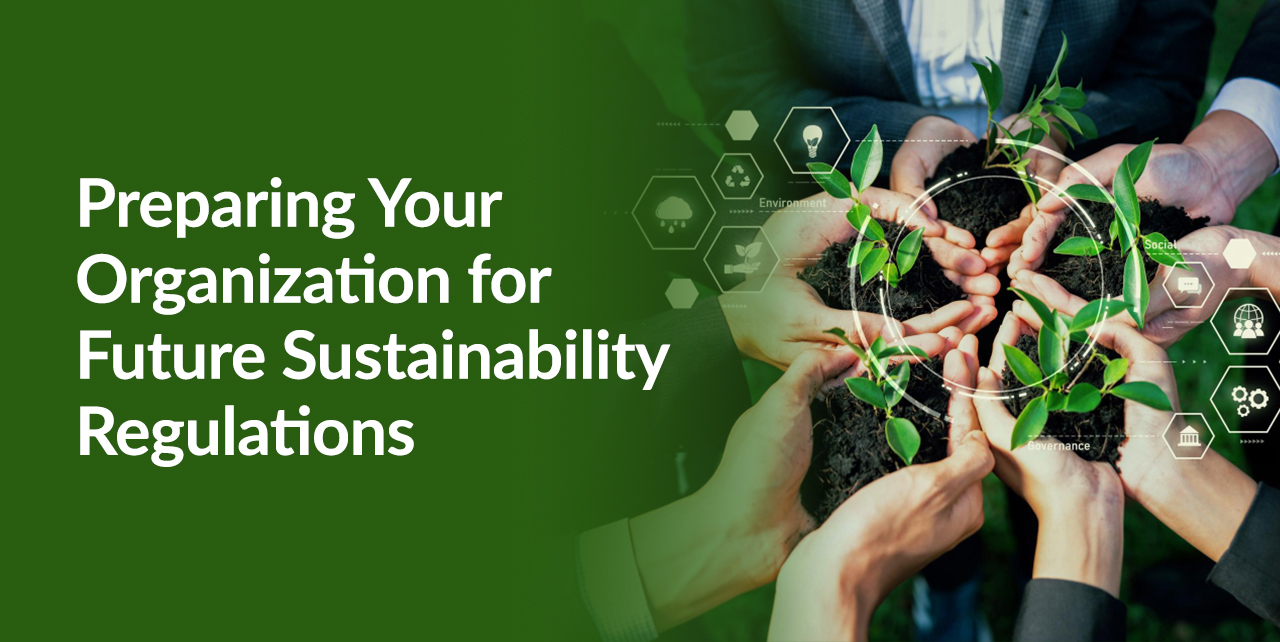As the world shifts towards a more sustainable future, regulatory landscapes are evolving rapidly. Governments and international bodies are enacting stricter regulations to combat climate change, protect the environment, and promote social responsibility. For organizations, staying ahead of these regulations is crucial not only for compliance but also for long-term success and reputation.
Understanding the Regulatory Landscape
Before diving into preparation strategies, it’s essential to understand the current regulatory landscape and anticipate future trends. Governments worldwide are increasingly prioritizing sustainability, with regulations covering areas such as carbon emissions, waste management, renewable energy, and ethical sourcing. Additionally, international agreements like the Paris Agreement and the United Nations Sustainable Development Goals (SDGs) set global targets that influence local regulations.
Anticipating Future Regulations
Before implementing new strategies, organizations should assess their current level of compliance with existing regulations. Conducting a comprehensive audit of environmental practices, supply chain operations, and social responsibility initiatives can identify areas of strength and weakness. This assessment serves as a baseline for future improvement efforts and ensures alignment with evolving regulatory requirements.
Assessing Current Compliance
Recent studies have assessed drinking water quality in Malaysia, revealing both successes and challenges. While the majority of Malaysian and WHO Drinking Water standards have been met, issues such as elevated levels of Cu, Cd, Fe, and Pb from galvanized plumbing and pipe corrosion pose health risks. Similarly, pollutants like nitrate and ammonia in groundwater are linked to agricultural practices in rural areas.
Embedding Sustainability into Organizational Culture
To navigate future sustainability regulations successfully, organizations must embed sustainability into their core values and culture. This involves fostering a mindset of environmental stewardship, social responsibility, and ethical governance across all levels of the organization. Leaders play a crucial role in championing sustainability initiatives, communicating the importance of compliance, and fostering a culture of continuous improvement.
Building Cross-Functional Collaboration
Achieving sustainability goals and regulatory compliance requires collaboration across departments and functions within an organization. Establishing cross-functional teams dedicated to sustainability can facilitate knowledge sharing, resource allocation, and goal alignment. By breaking down silos and fostering collaboration, organizations can leverage diverse expertise to implement effective sustainability strategies.
Investing in Technology and Innovation
Technology plays a vital role in facilitating sustainability efforts and ensuring regulatory compliance. Investing in innovative solutions such as renewable energy systems, waste management technologies, and carbon tracking software can enhance operational efficiency and reduce environmental impact. Embracing digitalization and automation can streamline data collection, reporting processes, and regulatory monitoring, enabling organizations to stay ahead of evolving requirements.
Engaging with Stakeholders
Effective stakeholder engagement is essential for understanding community expectations, addressing concerns, and building trust. By fostering transparent communication and meaningful dialogue with stakeholders, organizations can gain valuable insights, identify potential risks, and garner support for sustainability initiatives. Engaging with customers, employees, investors, suppliers, and local communities fosters collaboration and strengthens the organization’s social license to operate.
Monitoring and Reporting Progress
To track progress towards sustainability goals and regulatory compliance, organizations must establish robust monitoring and reporting mechanisms. Implementing key performance indicators (KPIs), conducting regular audits, and preparing comprehensive sustainability reports enable organizations to assess performance, identify areas for improvement, and demonstrate accountability to stakeholders. Transparent reporting fosters trust, enhances reputation, and drives continuous improvement.
By understanding the regulatory landscape, anticipating future trends, assessing current compliance, embedding sustainability into organizational culture, building cross-functional collaboration, investing in technology and innovation, engaging with stakeholders, and monitoring progress, organizations can navigate regulatory challenges effectively and drive positive change. Embracing sustainability not only ensures compliance but also fosters innovation, enhances reputation, and creates value for stakeholders and society as a whole.


